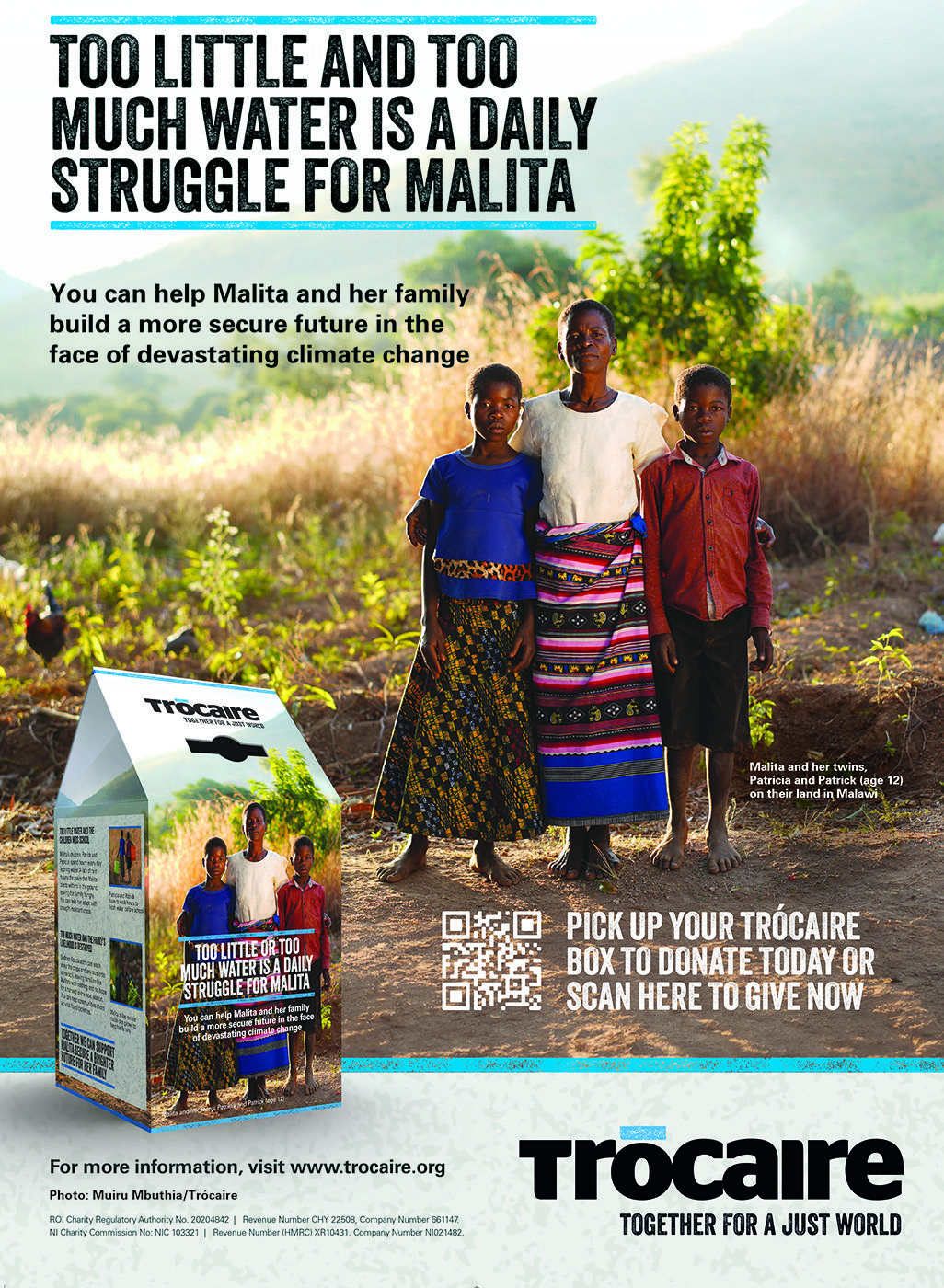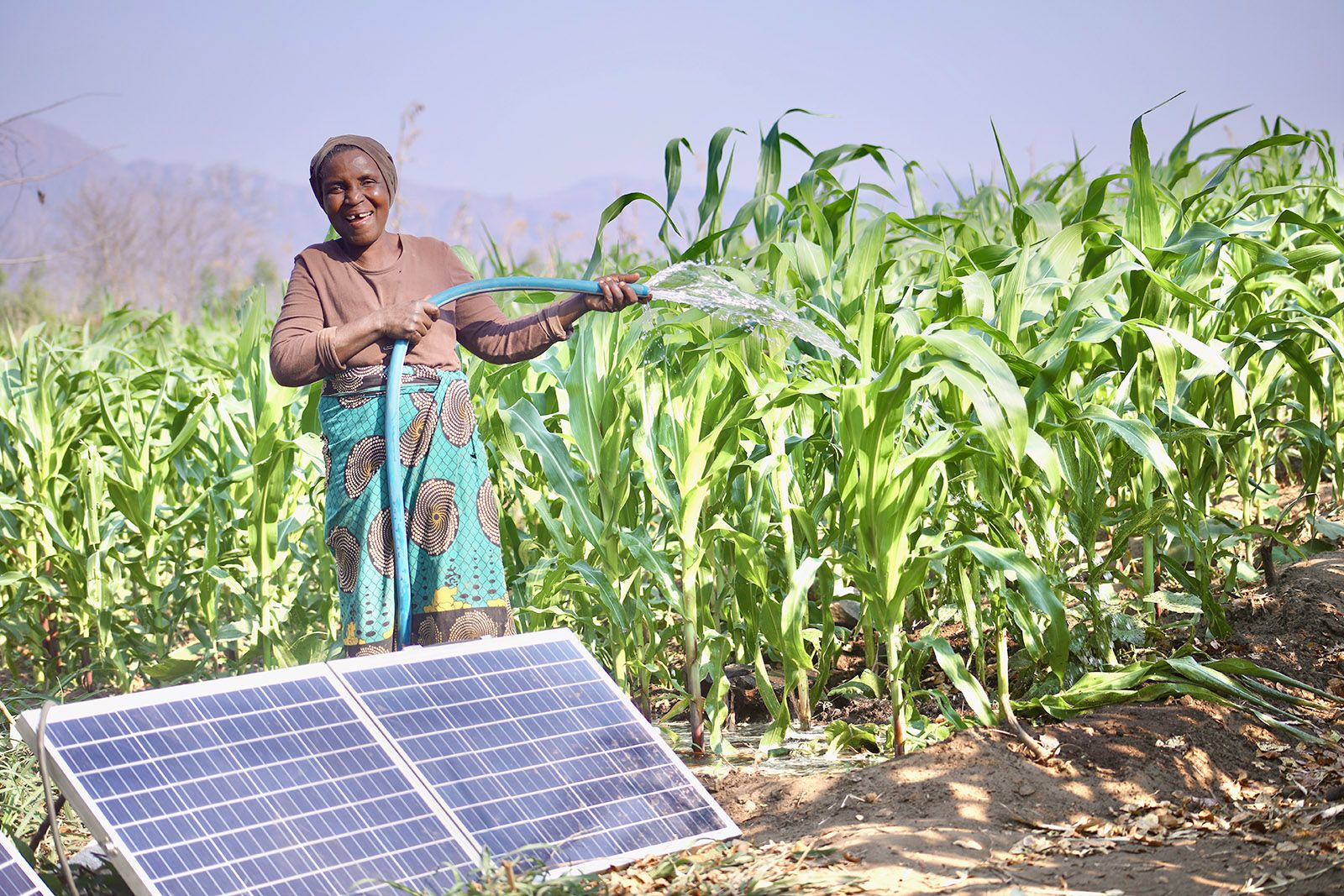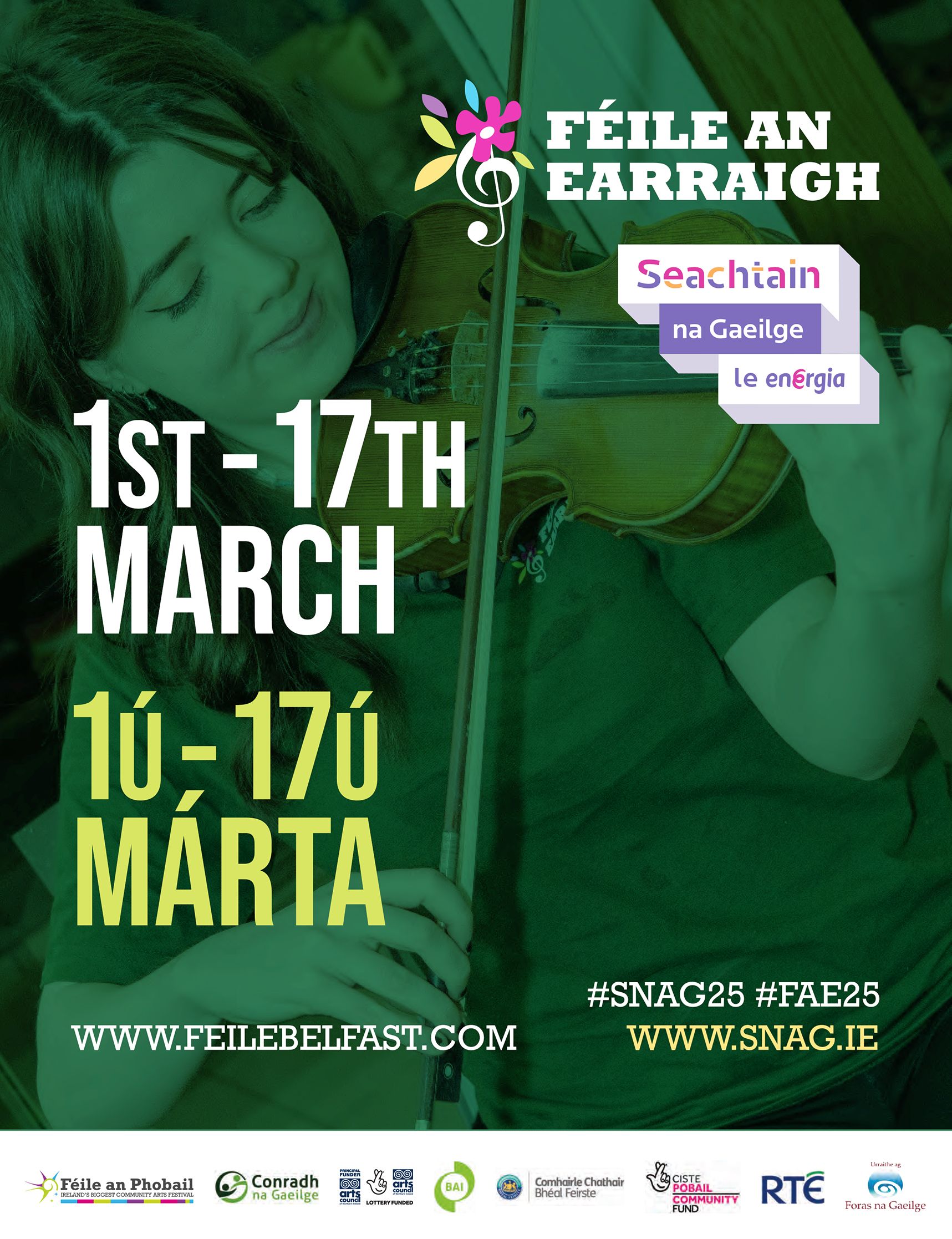IN Malawi, Trócaire and local partner organisations are focusing on providing safe drinking water and hygiene education to as many people as possible.
Water is essential to life, and safe access to drinking water is a basic human right. Despite this, there are still almost 2.2 billion people globally who lack it. Trócaire is proud to be on the frontlines of the climate crisis, providing some of the world’s most vulnerable communities with safe drinking water and water-related education. In Malawi, a devastating cycle of too much or too little water means that the people of Malawi are some of the most vulnerable to the climate crisis. Severe floods can be followed by droughts within the same year, while cyclones are a new phenomenon the country has had to face in recent times. Last year, Cyclone Freddy brought huge devastation. Hundreds of people lost their lives and over half a million people were left homeless.
At the frontline of the climate crisis, Trócaire is proud to work with local partner organisations and government officers to provide vulnerable communities in Malawi with the critical infrastructure and education necessary for safe water access. Here are eight ways that Trócaire is saving and changing lives through water access:
1. Borehole wells
Trócaire drills boreholes for communities that have no access to household water. Through discussions with community members, communities that are in urgent need are prioritised. In 2023, Trócaire drilled 11 new boreholes which have been fitted with hand pumps.
2. Pump repairs, maintenance and training
Trócaire also maintains the pumps and trains local people on how to organise and fundraise for maintenance needs. Sometimes, pump breakage is due to cyclones. In 2023, Trócaire and partners maintained and repaired 57 boreholes and pumps. Of these, 42 were nonfunctional due to the impacts of Cyclone Freddy.
3. Wells and solar pumps
To reduce the distance families have to travel to access water, Trócaire supports communities with deep wells and solar pumps which can distribute water closer to more homes and communities via a water kiosk.
When resources are limited and geographical conditions allow, communities can use their local knowledge to manually dig wells, usually 10 to 15 meters deep. A small solar pump is then fitted on the well to transport water to a nearby tap.
4. Irrigation
Solar powered pumps can also be used for the irrigation of agricultural land. Trócaire provides separate outlets for irrigation and household use, and communities are taught best irrigation practices in order to make the water system work most efficiently and to best address the needs of the community.
The President of Malawi (@LAZARUSCHAKWERA) has this week declared a State of Disaster in 23 of Malawi's 28 states as the country does its best to deal with devastating climate disasters.
— Trócaire (@trocaire) March 26, 2024
Climate change has arrived. Let's support those on the frontlines: https://t.co/wRYNFc4OvL pic.twitter.com/kF7Zu6itcw
5. Avoiding salt-contaminated water
Trócaire works in communities where groundwater is contaminated with high levels of salt. In these cases, Trócaire works on redistributing water from other wells to the affected community, in close collaboration with local leaders. This work involves analysing existing water sources and ensuring that all drilling and water projects provide quality water. Communities also use indigenous knowledge such as tree species to identify non-saline zones.
6. Rope and Wash pumps
Trócaire installs rope and wash pumps for communities living close to flood prone areas because they are cheap and act as a temporary solution to access water, especially when working in the fields. It is vitally important to Trócaire that local communities have the opportunity to choose the technology most suitable for their needs.
7. Water management and conservation
Trócaire promote improved farming and land management practices such as tree planting to reduce erosion. Erosion has knock-on effects which can lead to river pollution and flooding. Tree planting, management and care are a key water management intervention in communities, and this is a part of all Trócaire’s projects in Malawi. Over 6,000 households have been supported in 2023 and 2024 to date.
8. Local training and education
All water projects involve training community members who can then operate and maintain the system long term. Trócaire and our partners train ‘Water Point Committees’ which include learning visits, hands on training during installation and classroom-based work, depending on the situation.
In summary, Trócaire is committed to providing safe access to water in Malawi, as it is clear this changes lives, and saves lives. Through these projects, and in collaboration with our local partners, we have reached thousands of vulnerable people and families in Malawi, and we will continue working to tackle water and climate injustice across the region.
This year, Trócaire’s Lenten appeal is focused on our work in Malawi. If you can, please
make a donation today to support many more families who are on the frontlines of the climate crisis. They desperately need basic services like access to safe water, food baskets, medicines, and other urgent and compassionate supports.
To make a donation to the
Lenten Appeal visit www.trocaire.org
or call 0800 912 1200.






